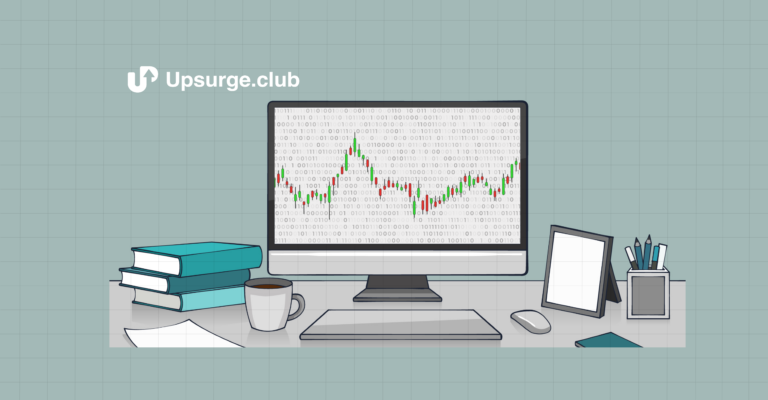Emotions play a crucial role in trading as they can significantly influence decision-making, risk tolerance, and overall trading performance. It can impact your ability to make rational and disciplined choices, highlighting the importance of understanding and managing emotions in the trading process. Emotions can be a powerful ally or a formidable enemy when managing your trading portfolio. In this blog, we will explore how are emotions a threat to your trading portfolio and understand how trading psychology can help mitigate their adverse effects.

Source: Frontiers For Young Minds
The Role of Emotions in Trading
Emotions play a significant role in trading, often influencing our decision-making process and potentially clouding our judgment. Some common emotions experienced by traders include:
1. Fear
Fear is a natural response when faced with uncertainty or potential losses. It can lead to hesitation, missed opportunities, and the inability to stick to a trading plan. Fear can manifest as the fear of missing out (FOMO) or losing money, both of which can negatively impact trading outcomes.
2. Greed
Greed, on the other hand, arises when traders become overly focused on maximizing profits. It can lead to impulsive decisions, excessive risk-taking, and the failure to lock in profits. Greed can cloud judgment and prevent traders from adhering to their predefined risk management strategies.
3. Overconfidence
Excessive confidence can be equally detrimental to trading success. When traders become overly confident in their abilities, they may disregard proper risk assessment, neglect thorough analysis, and overtrade. Overconfidence can lead to poor risk management and significant losses.
The Impact of Emotional Decision-Making
Emotional decision-making can have severe consequences for your trading portfolio. It can lead to impulsive trades based on short-term market fluctuations, deviating from your trading plan, and abandoning disciplined risk management. Here are some common pitfalls resulting from emotional decision-making:
1. Chasing Losses
After incurring a loss, the emotional response of wanting to regain that lost capital can drive traders to take unnecessary risks or deviate from their trading strategy. Chasing losses often leads to further losses and a cycle of emotional decision-making.
2. Ignoring Stop-loss Orders
Stop-loss orders are crucial risk management tools that help protect your trading capital. However, emotions can cause traders to ignore or adjust their stop-loss orders, resulting in larger losses than anticipated.
3. Overtrading
Emotions, particularly the fear of missing out (FOMO), can push traders into excessive trading, taking positions without proper analysis or justification. Overtrading increases transaction costs, spreads focus thin, and exposes traders to unnecessary risks.
4. Confirmation Bias
Confirmation bias occurs when traders seek information supporting their beliefs and ignore contradictory evidence. Emotional attachment to a particular trade or bias can hinder objective analysis and lead to poor decision-making.
Mastering Trading Psychology
Recognizing the influence of emotions and mastering trading psychology is crucial for consistent trading success. Here are some strategies to help manage emotions and improve your trading performance:
1. Develop a Trading Plan
A well-defined trading plan provides a framework for objective decision-making. It outlines your entry and exit criteria and risk management strategies and helps you stay disciplined amidst emotional market fluctuations.
2. Practice Self-Awareness
Self-awareness is key to managing emotions. Take the time to understand your emotional triggers and how they affect your trading decisions. Being aware of your emotions allows you to pause, reflect, and make more rational choices.
3. Utilize Risk Management Strategies
Implementing effective risk management strategies, such as setting appropriate stop-loss orders and position sizing, helps protect your capital and reduce emotional decision-making driven by fear or greed.
4. Use Trading Journals
Maintaining a trading journal allows you to track your emotions, document your trades, and analyze your decision-making process. It helps identify patterns, strengths, and weaknesses, enabling you to make necessary adjustments and improve your trading approach.
5. Seek Education and Support
Enrolling in a trading psychology course can provide invaluable insights and techniques for managing emotions. Upsurge.club’s comprehensive Risk Management and Trading Psychology course offers a structured curriculum designed to enhance your trading mindset and improve your decision-making skills.
Conclusion
Emotions can indeed pose a significant threat to your trading portfolio. However, you can mitigate their negative impact by understanding trading psychology and implementing effective strategies. Developing self-awareness, following a trading plan, practicing risk management, and seeking education can help you navigate the emotional challenges of trading and enhance your overall performance.
If you’re ready to take your trading to the next level and gain a deeper understanding of trading psychology and risk management, we highly recommend enrolling in Upsurge.club’s course on Risk Management and Trading Psychology. This course will equip you with the knowledge and skills to make informed decisions, manage emotions effectively, and increase your chances of trading success. Don’t miss this opportunity to transform your trading approach and achieve your financial goals!



